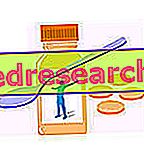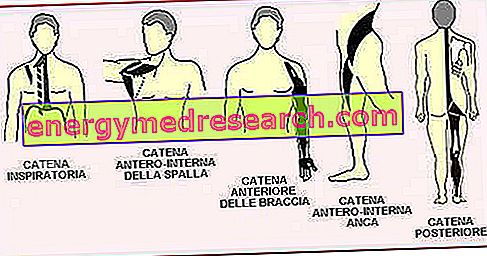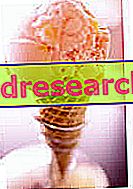Definition
"Celiac disease" is defined as a permanent intolerance to gluten, responsible for a toxicity that affects the intestinal mucosa; in other words, celiac disease is a rather complex digestive condition that affects the small intestine and interferes with nutrient absorption. Celiac disease does not cause any disturbance if you do not take food containing gluten.
Causes
Celiac disease is strongly conditioned by the genetic component; moreover, the disease seems to be influenced also by the alteration of the immune system: gluten triggers an excessive and violent immune response, addressed to the cells of the small intestine used for nutrient absorption. In light of recent studies, it has been observed that a particular virus (rotavirus) can affect the manifestation and exacerbation of celiac disease.
Symptoms
Typical is the vagueness of the onset symptoms associated with celiac disease, responsible for a postponement of the diagnosis and an aggravation of the disease: oral ulcers, anemia, anorexia, vitamin deficiency, abdominal and muscular cramps, weakness, diarrhea, weight loss, pain to the bones, meteorism and flatulence, osteoporosis, itching, skin rash, steatorrhea.
Diet and Nutrition
Information on Celiac Disease - Drugs for the Treatment of Celiac Disease is not intended to replace the direct relationship between health professional and patient. Always consult your doctor and / or specialist before taking Celiac Disease - Drugs for the Treatment of Celiac Disease.
drugs
More than drugs, it would be more correct to talk about possible treatments for celiac disease; it is right to point out that celiac disease is not cured but, by putting into practice some simple dietary rules, it is possible to avoid disorders associated with gluten intolerance.
Given that, as we have seen, gluten is the element that triggers the celiac reaction, the first basic rule is clearly that of avoiding all the foods that contain traces of it: oats, spelled, wheat, kamut, barley, rye, semolina, triticale and derivatives.
On the other hand, maize, millet, rice and some pseudo-cereals such as amaranth and quinoa may be present in the diet of a celiac, given that they do not form gluten in contact with water.
After eliminating all traces of gluten from the body, intestinal inflammation tends to gradually disappear and, in a few days, all the symptoms that accompany the disorder vanish.
In severe cases, the healing of intestinal villi may take several weeks or even months.
Diet control is the most appropriate therapeutic option to avoid the symptoms due to celiac disease; drugs can sometimes relieve intestinal inflammation when the dietary correction is not sufficient.
Vitamin supplements : in some cases, celiac patients may need vitamin and mineral supplementation, formulated with:
- Iron (eg Ferrograd)
- Folate (ex. Folidex, Fertifol, Folina)
- Vitamin B12 (eg. Multicentrum)
- vitamin D (eg Xarenel, Dibase)
- vitamin K (eg. Menadiol)
Vitamin and mineral supplementation is useful to counteract the possible state of malnutrition in the context of celiac disease.
It is the duty of the doctor to prescribe or recommend the most correct food supplement for celiac, based on the lack of one vitamin rather than another; in most cases, vitamins and minerals are taken in the form of tablets or capsules; however, in particular circumstances, these assets can be taken by injection.
Steroids : in some patients, the gluten immune reaction manifests itself so violently that it requires the administration of steroid drugs to control intestinal inflammation. Among all, prednisone (eg Deltacortene, Lodotra) is among the most widely used corticosteroid drugs for this purpose.
Other drugs to ease the symptoms of celiac disease :
- Infliximab (eg Remicade): it is a monoclonal antibody indicated for the treatment of autoimmune diseases, whose mechanism of action is explained by the link with TNF-alpha (tumor necrosis factor, implicated in the autoimmune reaction). At a dosage of 5 mg / kg (to be taken for a slow 2-hour intravenous infusion, in a single dose), the drug is indicated to keep the disorders associated with celiac disease under control.
Experimental drugs
The research is making great strides to implement some cures and to ensure that even celiac can take all the foods, including those with gluten: these are the expectations and hopes on which the current studies aimed at the search for are based. cures for celiac disease. It seems, in fact, that in the future a drug will be available that can block the "toxic" activity of gluten, before this can damage the body of the celiac. Furthermore, new vaccines for the prevention and treatment of celiac disease are also being tested; it has been said, in fact, that also the infection of the rotaviruses could increase the risk of celiac disease and, a vaccine (specific for the pediatric age), could avoid its damage.



